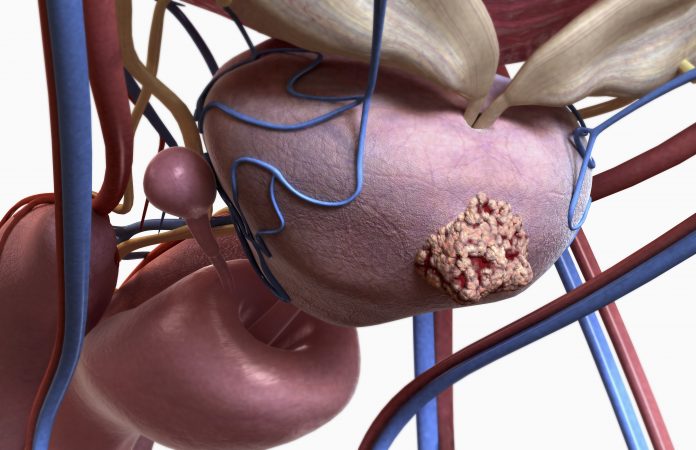
Myriad Genetics said today it will assess the clinical utility of its Prolaris test in men diagnosed with prostate cancer, through a collaboration with the Leeds Centre for Personalised Medicine and Health (LCPMH) whose value was not disclosed.
Myriad and LCPMH plan to partner on a study designed to evaluate the effect of the Prolaris test on doctors’ and patients’ decisions about treatment. The study will also assess the cost of using Prolaris routinely in the UK’s state-funded National Health Service.
Prolaris is a novel RNA-expression test that directly measures tumor cell growth characteristics for stratifying the risk of disease progression in patients with prostate cancer.
For the fiscal year that ended June 30, Myriad generated $25.5 million in testing revenue from Prolaris, up about 19% from $21.5 million a year earlier. Prolaris accounted for 3% of Myriad’s total $789.4 million in total molecular diagnostic testing revenue during FY 2019, which was approximately 93% of the company’s total revenue.
Prolaris provides a quantitative measure of the RNA expression levels of genes involved in the progression of tumor growth. Low gene expression is associated with a low risk of disease progression in men who may be candidates for active surveillance, while high gene expression is associated with a higher risk of disease progression in patients who may benefit from additional therapy.
The study aims to address concerns that men whose Prolaris test results show their prostate cancer to be low risk may choose to avoid or delay having invasive treatments such as surgery or radiotherapy. In addition to their costs, those treatments also have associated risks of bowel and urinary problems as well as erectile dysfunction.
“This study will explore how healthcare professionals and their patients react to being given more personalized information than usual tests can give about risk,” Mike Messenger, head of LCPMH, said in a Myriad statement. “We want to understand whether the Prolaris test results influence what they decide to do next, and if so why and in what way.”
Clinical Outcomes Study
Earlier this month, Myriad trumpeted positive results from a clinical outcomes study published in Personalized Medicine that demonstrated Prolaris could identify men with low-risk prostate cancer who can safely select active surveillance and defer the need for radiation therapy or surgery.
In June, a study published in Nature Prostate Cancer and Prostatic Diseases showed that Prolaris was the strongest independent predictor of progression to metastatic disease, and men were approximately three times more likely to develop metastatic disease with each unit increase in the Prolaris test score. That study assessed 1,062 men with newly diagnosed localized prostate cancer to evaluate the ability of the Prolaris test to predict risk of metastases.
Myriad and LCPMH noted that prostate cancer is the most common form of cancer in men in the UK, with nearly 50,000 new cases discovered each year—the equivalent of about 130 new cases every day.
“We are excited to collaborate with Leeds and help improve the outcomes for men with prostate cancer,” added Gary King, executive vice president, International Operations at Myriad. “The Prolaris test will help men with prostate cancer to benefit from advances in genetic testing and personalized treatment plans.”
Hosted by the University of Leeds, LCPMH is a project of the Leeds Academic Health Partnership, a public-private partnership created to advance healthcare in Leeds, UK. Members of the Partnership include Leeds and York Partnership NHS Foundation Trust, Leeds Beckett University, NHS Leeds Clinical Commissioning Group, and Leeds City Council.
“Building on the state-of-the-art prostate cancer services offered by Leeds Teaching Hospitals, this exciting study is going to explore the application of what could be next generation of cancer diagnostic testing,” stated William Cross, consultant urological surgeon at Leeds Teaching Hospitals NHS Trust. “Hopefully, more personalized diagnostic information will lead to better treatment decisions and outcomes.”











